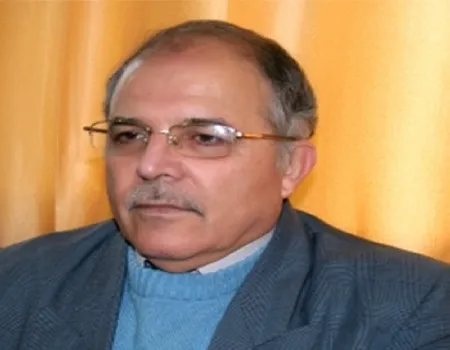Islamic Countries Summit in Qatar By Dr Waleed Abdulhay
Translated from Arabic by Ibrahim Ebeid-September 15,2025

Islamic Countries Summit in Qatar
By Dr Waleed Abdulhay.
Translated from Arabic by Ibrahim Ebeid. September 15,2025
The Organization of Islamic Cooperation (OIC), that have been invited to meet in Qatar to take a stand against the Israeli raid on Qatar, we would like to point out the following facts:
1- 29 Islamic countries recognize Israel legally and diplomatically, and four countries do not.
In Israel, de facto, including Qatar, there are 10
Only “non-Arab” Muslim countries do not recognize Israel (Afghanistan, Bangladesh, Brunei, Indonesia, Iran, Malaysia, Maldives, Mali, Niger, and Pakistan), meaning that 58% of those invited to the OIC summit recognize Israel legally and demically.
The volume of trade exchange between the OIC member countries and Israel reaches about $19 billion, led by Turkey in trade with Israel (even after the recent announcement of the severance of trade relations), followed by the United Arab Emirates, Egypt, Jordan, Morocco, Azerbaijan, and Kazakhstan.
3- The positions of Islamic countries can be divided into 3 groups:
Countries that are closer to the Palestinian position politically, such as Iran, Pakistan, Malaysia, Brunei, Bangladesh, Afghanistan, Mali, and Niger, and even some of them, such as Chad, recalled their ambassador from Israel. Bangladesh participated in filing a lawsuit in the criminal court against Israel on charges of practicing genocide.
B. Countries that are closer to the Israeli position in their position: This is evident in the positions of Islamic countries in Central Asia in particular, and Azerbaijan and Kazakhstan can be considered the most clear in this aspect, while Tajikistan refrained from condemning the Al-Aqsa flood, and Uzbekistan tended to call for de-escalation, noting that all the countries of this region have diplomatic relations with Israel, which is the closest to the Israeli position compared to other regions.
C- Countries that have tried to balance the two parties to some extent, a position that some African countries, especially Nigeria, have generally adhered to, and Turkey’s announcement of the “suspension” of its trade with Israel, which amounts to $8 billion in 2023, constitutes an important step, especially since Turkey is Israel’s first trading partner in the Middle East, not to mention the continuation of the diplomatic relationship between the two parties, in addition to reports about its facilities for the delivery of oil to Israeli ports, whether from Central Asia or Iraqi Kurdistan.
This means that division and divergence in positions are the dominant features of the policies of the IC countries, which means that the summit will likely result in a statement that appeases all parties. It seems that “reproach, denunciation, condemnation, and the strongest phrases will prevail”, and these countries will not dare to exceed these limits in their final statement. It. It is doubtful that any of the following decisions will be taken:
1. It is unlikely to announce the severance of diplomatic or trade relations with Israel
2- It is unlikely that the United Nations will be asked to act on the implementation of the UN General Assembly resolution known as the “Uniting for Peace” to end the conflict in Gaza
3. It is unlikely that the Security Council will convene to consider the attack on Qatar based on Chapter VII of the Charter.
4- The two-state solution may be reintroduced because all Islamic countries supported it in the United Nations two days ago, except for four countries, three of which abstained (Iran, Iraq, and Tunisia) for fear that recognizing the two-state solution would mean implicit recognition of Israel. In contrast, the fourth country, Afghanistan, was absent because it was banned from voting. After all, it did not pay its contributions to the UN budget.
5- Some countries may be absent, and some countries may reduce their level of representation in the conference.
In my estimation, the conference is nothing but a demonstration of appeasement for Qatar, and an attempt to restore the “prestige of the proxy diplomacy that it adopts, which was explicitly and clearly expressed by its former Prime Minister Hamad bin Jassim by saying, “We are subcontractors, America asks us and we are implementing what it has asked for”, and the current Qatari prime minister expressed it by saying that “the Hamas office in Doha was done at the request of the United States and Israel”, so I hope that Qatari diplomats will read two important books about their situation within the scope of awareness of the complexities of international relations Contemporary:
1- كتاب- Small is Beautiful.1973- Ernst Friedrich Schumacher
Schumacher is one of Britain’s leading economists and statisticians.
2- كتابSheila Harden- Small is Dangerous: Micro States in a Macro World- 1985-
Sheila Harden previously served as Chair of the United Nations Trusteeship Board





